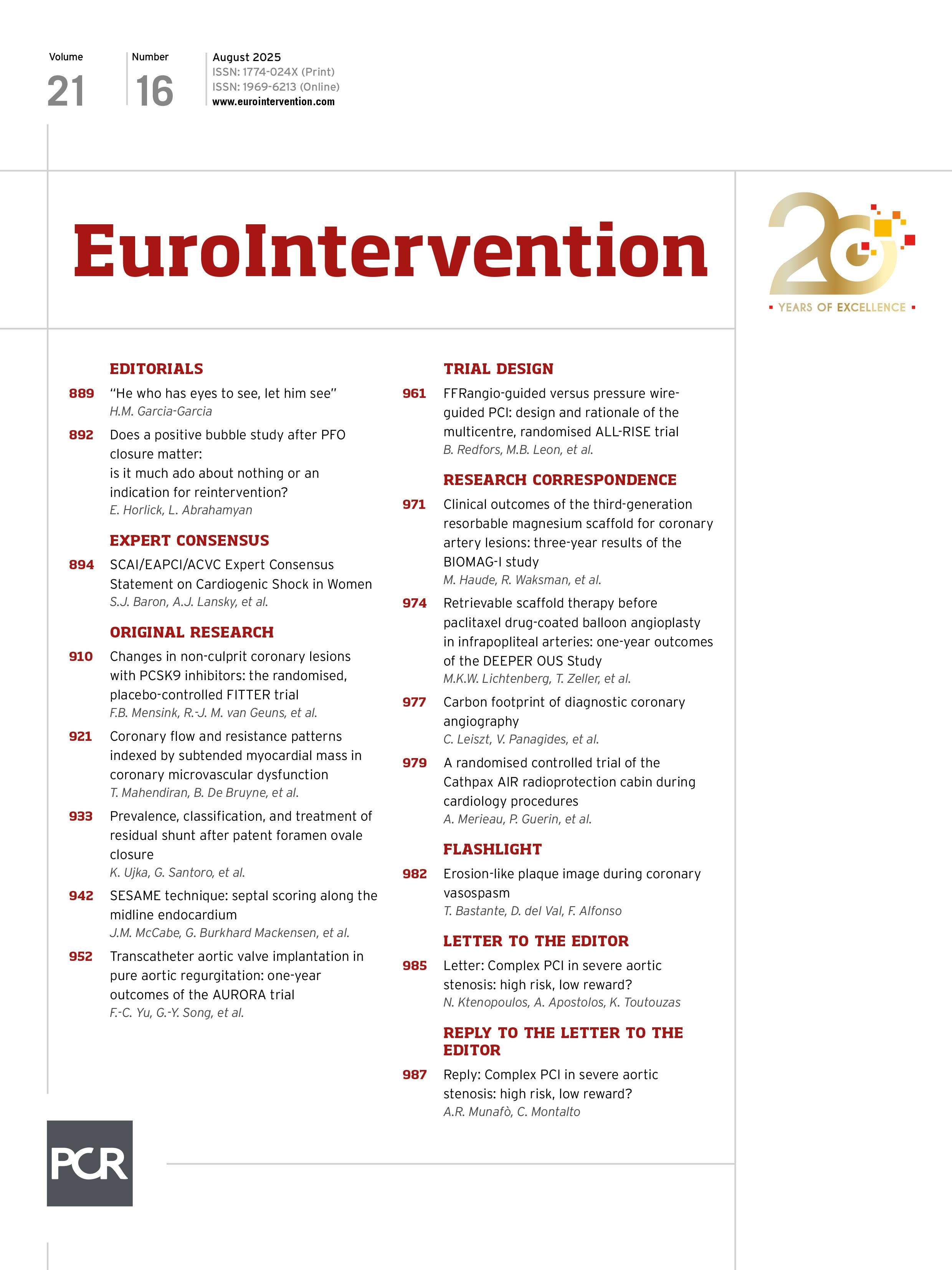We read with great interest the recent publication by Montalto et al, “Outcomes of complex, high-risk percutaneous coronary intervention in patients with severe aortic stenosis: the ASCoP registry”1. The authors are to be congratulated for addressing such a critical and emerging clinical challenge, complex percutaneous coronary intervention (PCI) in patients with severe aortic stenosis (AS). However, certain aspects of the study findings warrant further discussion.
Firstly, the study highlights substantial adverse event rates associated with complex/high-risk PCI in patients with severe AS, irrespective of whether PCI was performed concomitantly or staged with transcatheter aortic valve implantation (TAVI). Notably, early safety occurred in 55.9% of cases overall, device success in 74.8% of cases overall, and major adverse cardiac and cerebrovascular events (MACCE) remained considerable with a percentage of 19.8%. These outcomes stand in contrast to both data from randomised trials and real-world studies, which reported device success rates of about 90% and 87% and early safety rates of about 75% and 76%, respectively, with fewer MACCE23.
These findings raise fundamental questions regarding the overall benefit-risk ratio of performing complex PCI...
Sign up for free!
Join us for free and access thousands of articles from EuroIntervention, as well as presentations, videos, cases from PCRonline.com

